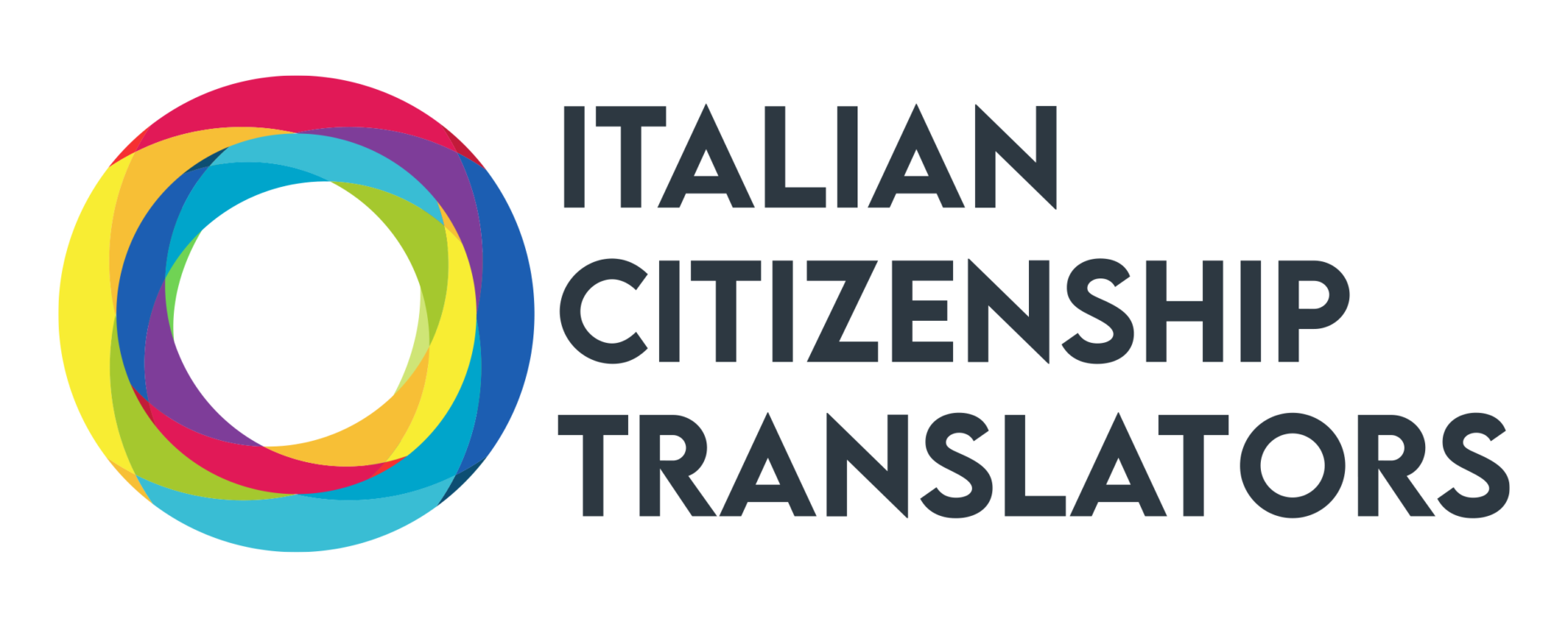
How Do I Secure Decades-old Records That Need to be Translated?
Retrieving the required documents and vital records is an essential step when preparing an application for Italian citizenship. In this segment, we cover some key aspects relating to the process of securing decades-old records that require translation for your dual citizenship application.
The procedure to collate translations for an Italian citizenship application can vary and depends on the route: whether administrative or judicial, and if you are making the application at an Italian municipality, an Italian consulate abroad, or filing a case at court through what is known as a 1948 case. Furthermore, there may be variations in the requirements regarding acceptable translations between the municipalities, consulates, and courts.
With this considered, it is a challenging endeavour to locate and gather the type of Italian translation of non-Italian records needed when applying for dual citizenship, and the translator takes legal and ethical responsibility for the task of ensuring accurate translation of documents.
Given that each document is unique, the translator must determine how correct each document and vital record is, and analyse for discrepancies, so that they can be used by the client in their citizenship application.
The technical nature of the work requires that translators learn and develop strategies over years, and these skills are refined over time and with experience, making translators experts in their field.
At what stage of the Italian citizenship application process do you need translations?
A client’s journey begins by establishing if they qualify for Italian citizenship. Whether you are applying for Italian citizenship by descent (iure sanguinis), through marriage (iure matrimonii), or naturalization, establishing eligibility is the first step.
The next phase is to retrieve and collate the required documents/vital records, which will include birth, marriage, and death certificates, as well as certification letters by clerks of the court, notaries public, or other administrative officers that verify the authenticity of the certified copies of your documents/vital records. You may also need certificates of naturalization records, or proof of non-naturalization, orders that grant name changes, and judgments for marriage dissolution, where applicable.
The documents you need will depend under which category you apply, however it is likely you will need to retrieve a large number of documents, and from within Italy and other countries where your relatives were born, got married, divorced, etc.
Once you have the documents, checking for discrepancies is essential, such as names, dates, and places, as errors will delay your application.
An important point to make is that translators are not allowed to make corrections, whether that be correcting misspellings or anglicizing names in the Italian version of your records. For example, if your Italian ancestor’s name was Pietro, but when he arrived in the U.S. he registered as Peter on his U.S. documents, the translator cannot change the name back to Pietro. Such interference would null and void the document. This may not be the case in relation to minor misspellings in city names or addresses, but each case is different, and a central part of the translator’s role is to discern to what extent texts can be altered and amended, without the risk of making the document null and void.
The next phase is to attach to each of your non-Italian records an Apostille, which is a
particular page or stamp used as a form of legalization for documents that are needed in a foreign country signatory of the Hague Convention.
How to select a translator to help with your non-Italian vital records?
In respect of an application for Italian citizenship, sworn translations are required for your non-Italian documents. Sworn translations, known as traduzioni giurate or traduzioni asseverate in Italy, which can only be done by sworn translators or translators (traduttori giurati) who are court-appointed, whose translations can be authenticated before an Italian court person.
A sworn translator will go before an Italian court and attest to the accuracy and faithfulness of the source documents. The court official attests to the declaration and signature of the translator, and it is this procedure that gives legal value to the translations, which can be used in the Italian legal arena. The documents authenticated this way are also valid within Italian consulates.
The vital records required for your Italian citizenship application are official documents, and so finding qualified an accredited translation professional is essential. You should hire a translator from a reputable company that has reviews attesting to their work.
You can also verify their credentials, including accredited membership and their translator registration. Official bodies have specific criteria translators must to submit to verify their credentials.
The translator should be familiar with the translation of vital records and the legal documents required. Furthermore, some vital records contain extensive handwriting or have a complex layout, making the process of reproducing them correctly incredibly challenging.
In addition, it is essential to hire a translator who is a native speaker of Italian, as this will help ensure that your documents have the correct phrasing and terminology. A native speaker can better understand the grammar, syntax, and structure of the documents.
With this considered, Italian sworn translators are essential for the dual citizenship application process.
Translations that are done outside of Italy (in the U.S.) can be notarized, which means a notary public authenticates them. However, the notary public’s writings will be in English (or the language spoken in that country), and so the translations will need to be legalized. This is done at the Italian consulate where your application is submitted. Generally, all documents submitted in Italy (at Italian municipalities or courts) need a sworn translation. In respect of Italian consulates abroad, requirements may vary depending on the consulate, but certified translations are widely accepted. With that said, we advise that you always contact the consulate, municipality, or court where you intend to apply, in order to ensure you comply with their translation requirements.
How do you obtain the translations you need for your non-Italian records?
Obtaining sworn translations is complex. Your translator will need hard copies of your records to take with them before an Italian court along with their Italian translations. Your translator will ask you to email scans of your documents to check their content and the number of pages. This lets the translator work out the cost of the revenue stamps, which are required by the Italian government on public documents (Italian citizenship records are public documents). You also have to send your documents to your translator in Italy through use of a tracked international courier.
Once your translator has your documents they will undertake the Italian translations, and present them to the local Italian court. The application will include the apostille, non-Italian document, Italian translation, and the sworn statement. A designated judicial officer will authenticate the translator’s statement by adding stamps, signatures, and revenue stamps to your translations.
Once this is complete, the translator will return your documents to you by sending them via express and special delivery.
If you would like more information about the translation services we offer, please contact us directly, and one of our expert advisors will be in touch to answer your queries.
